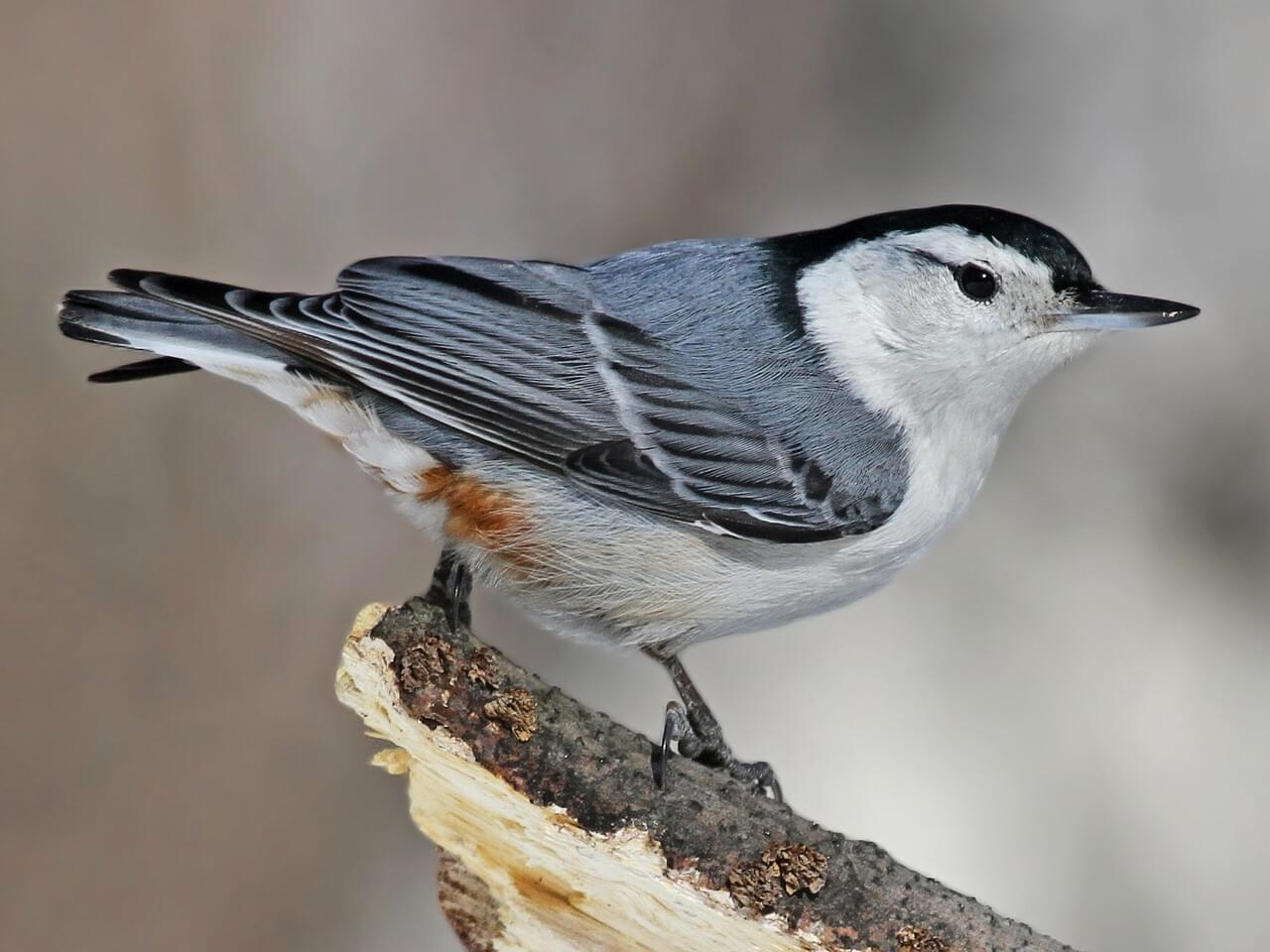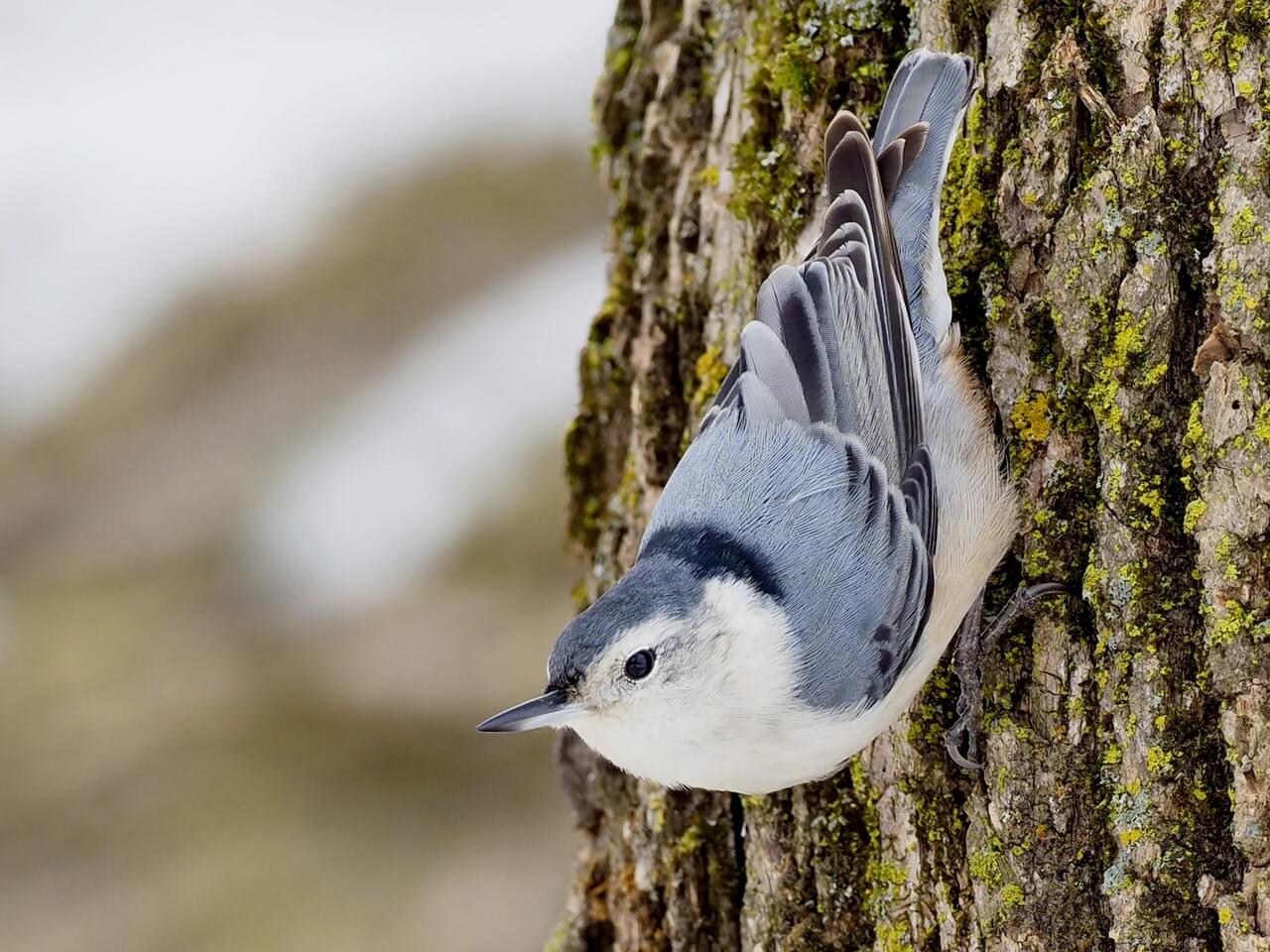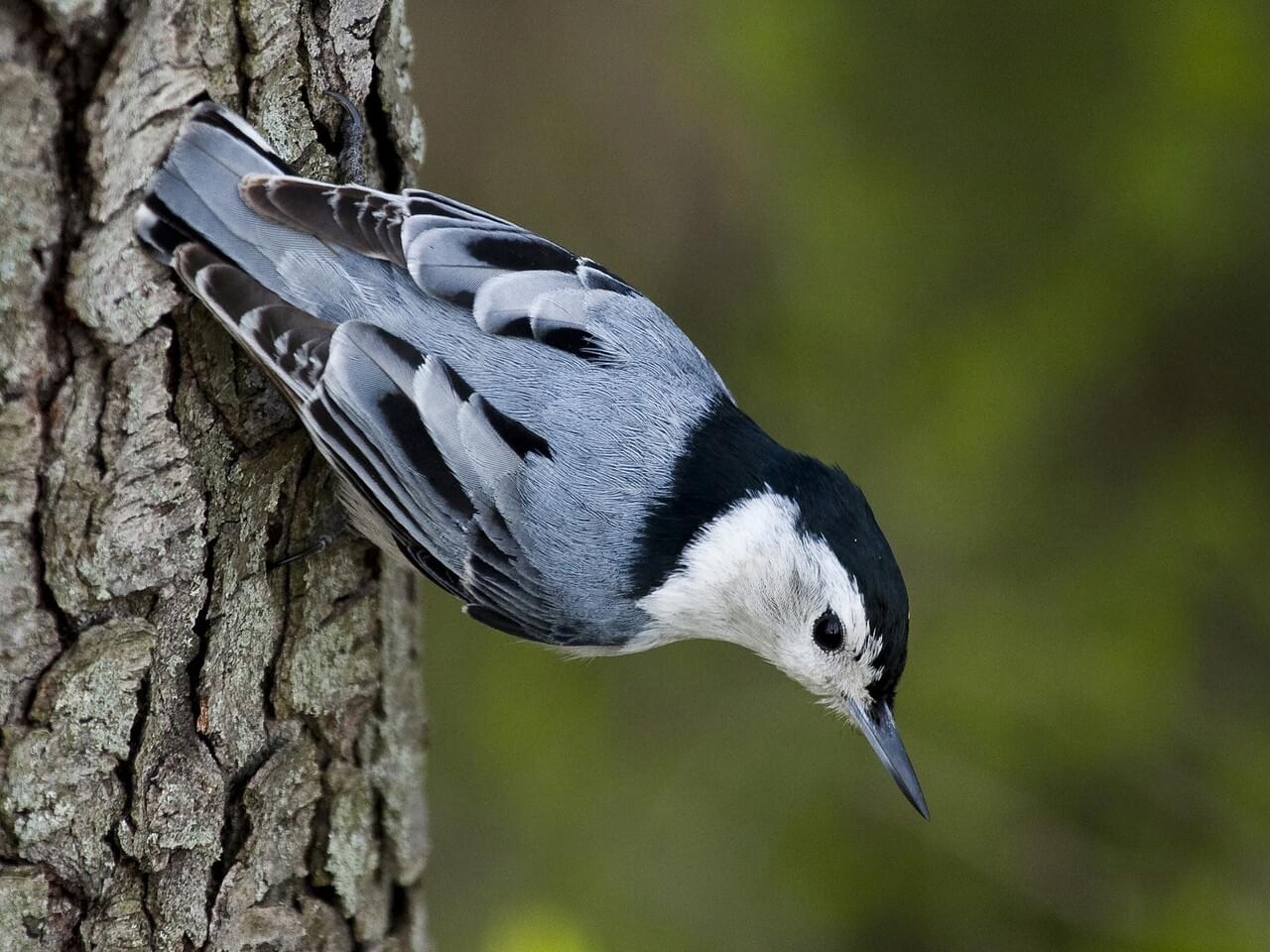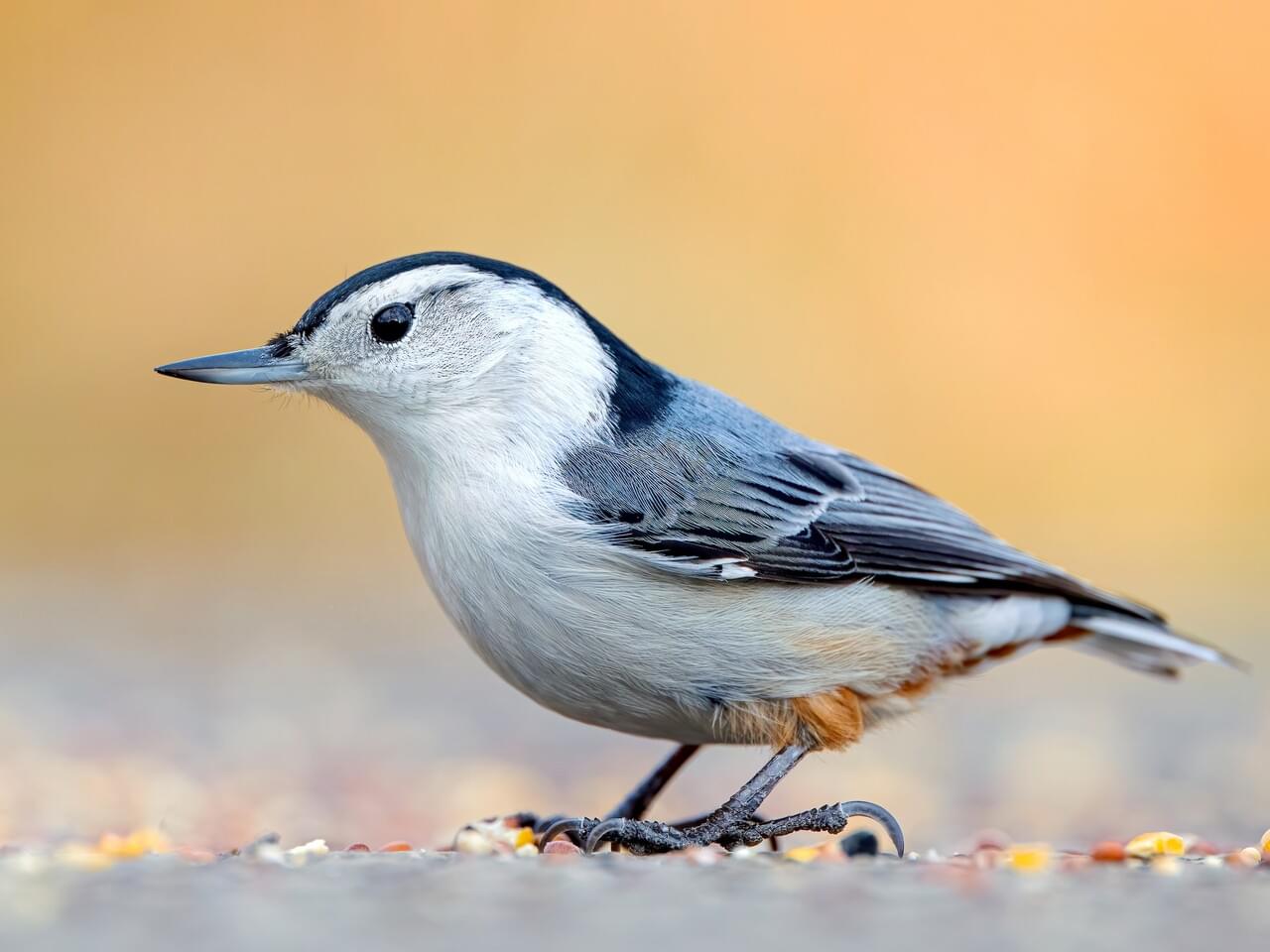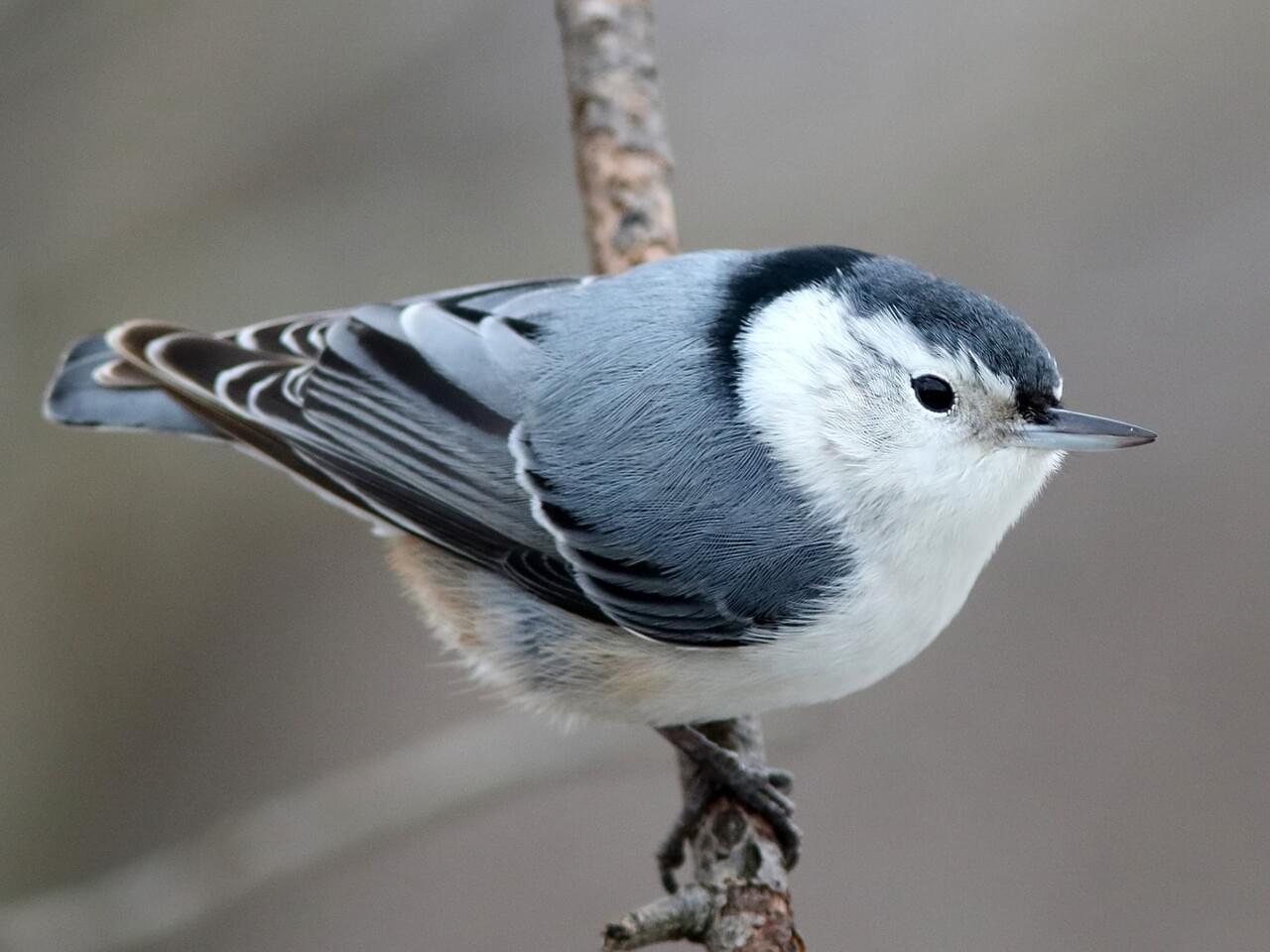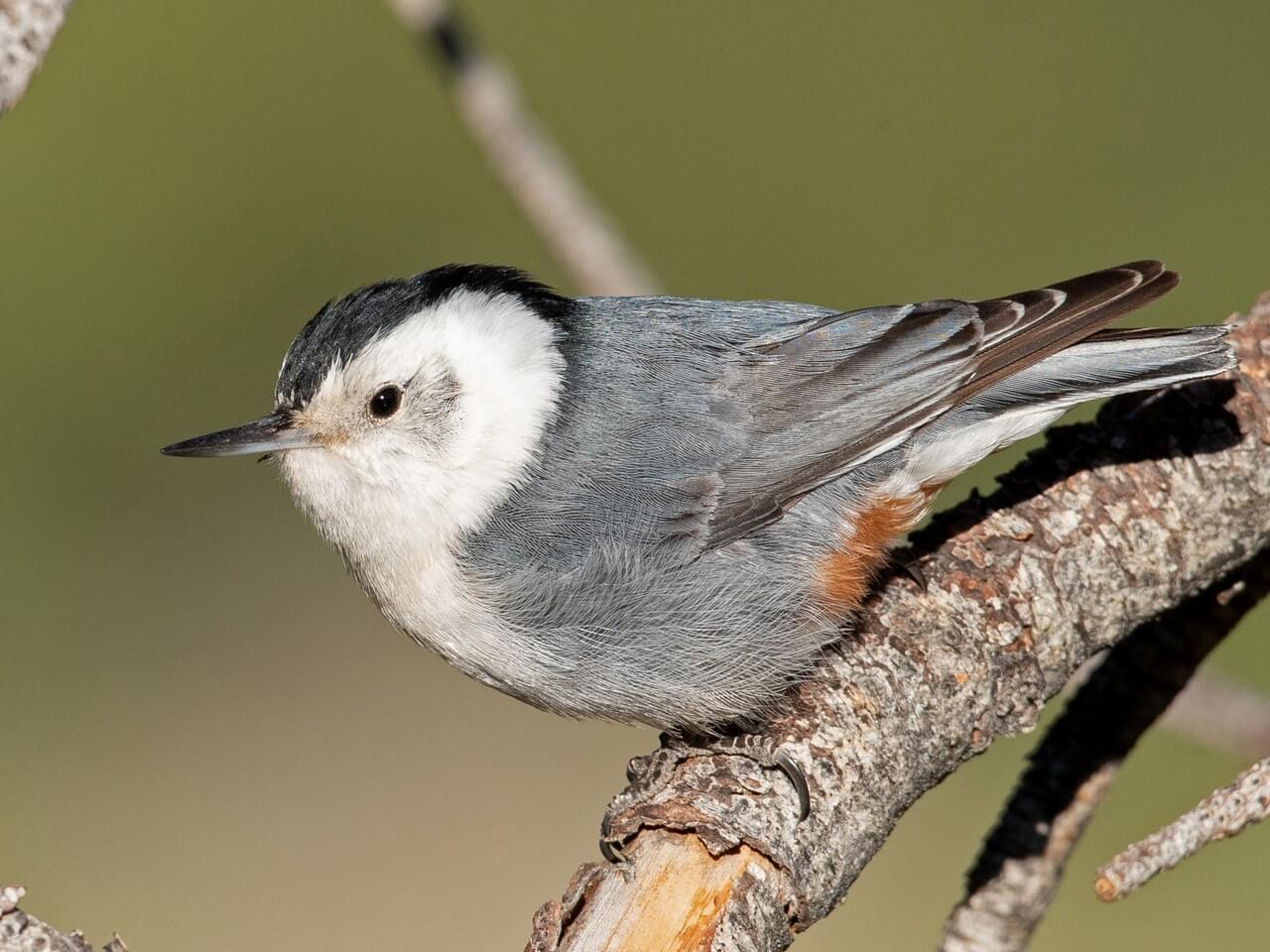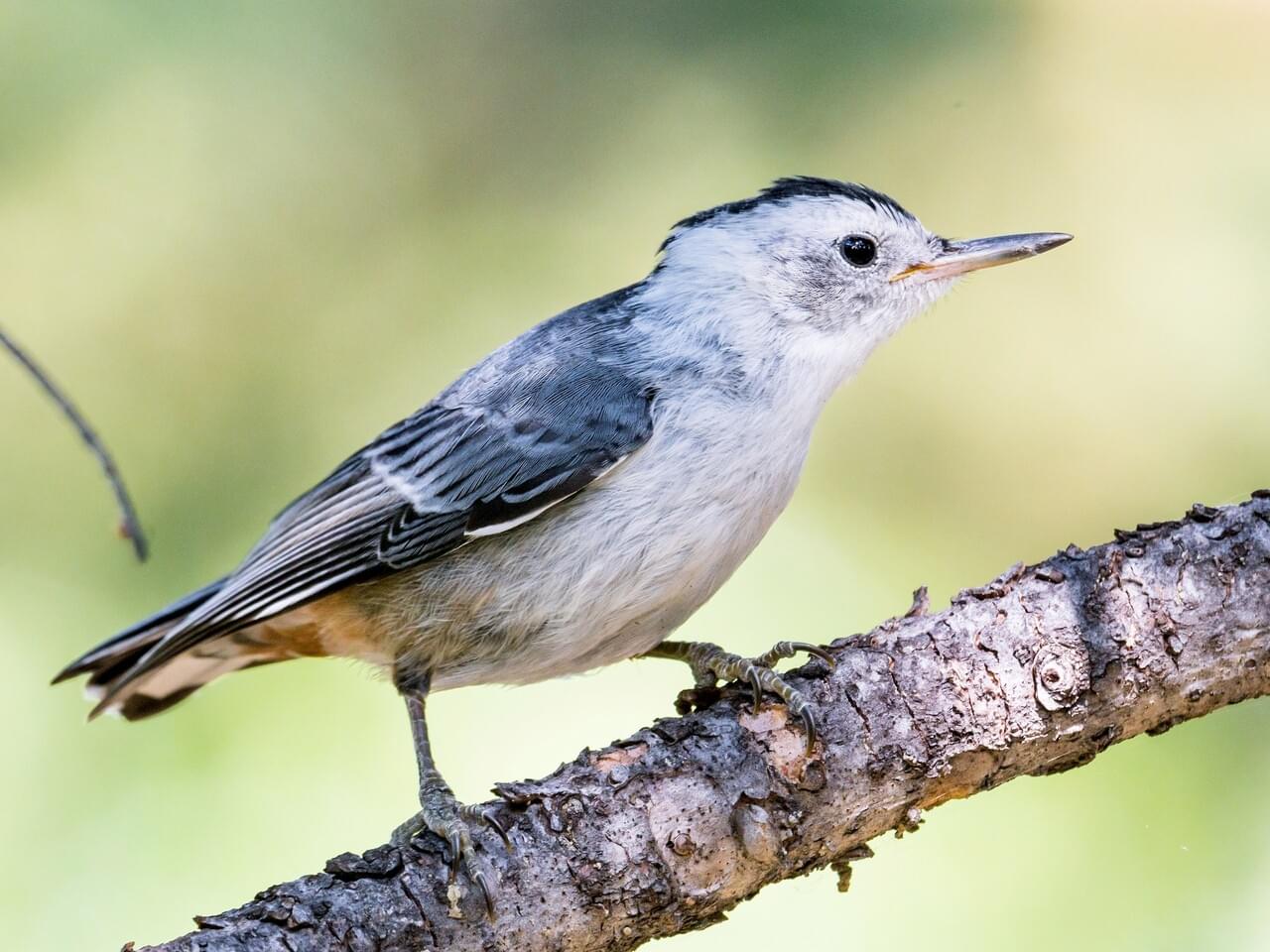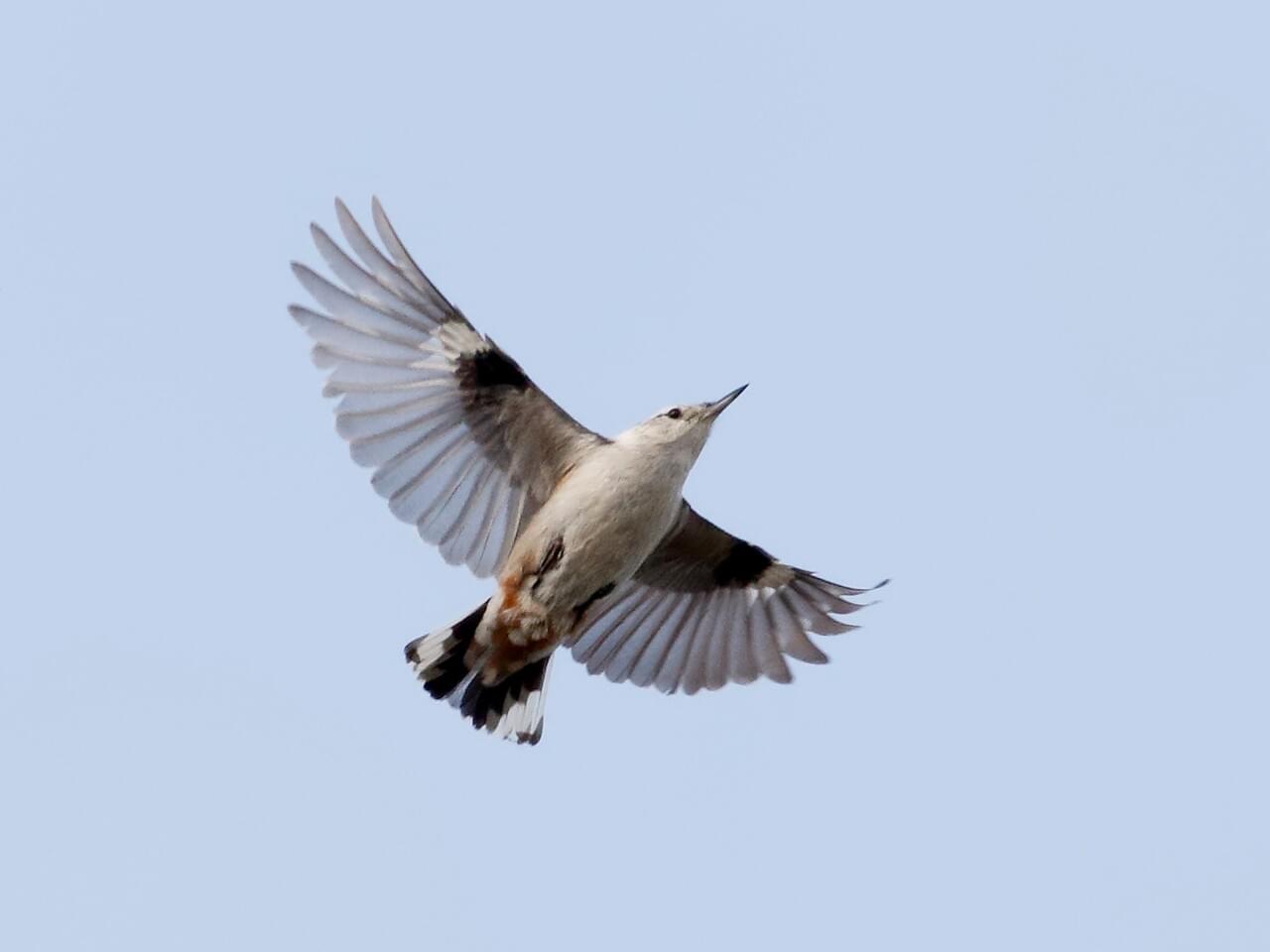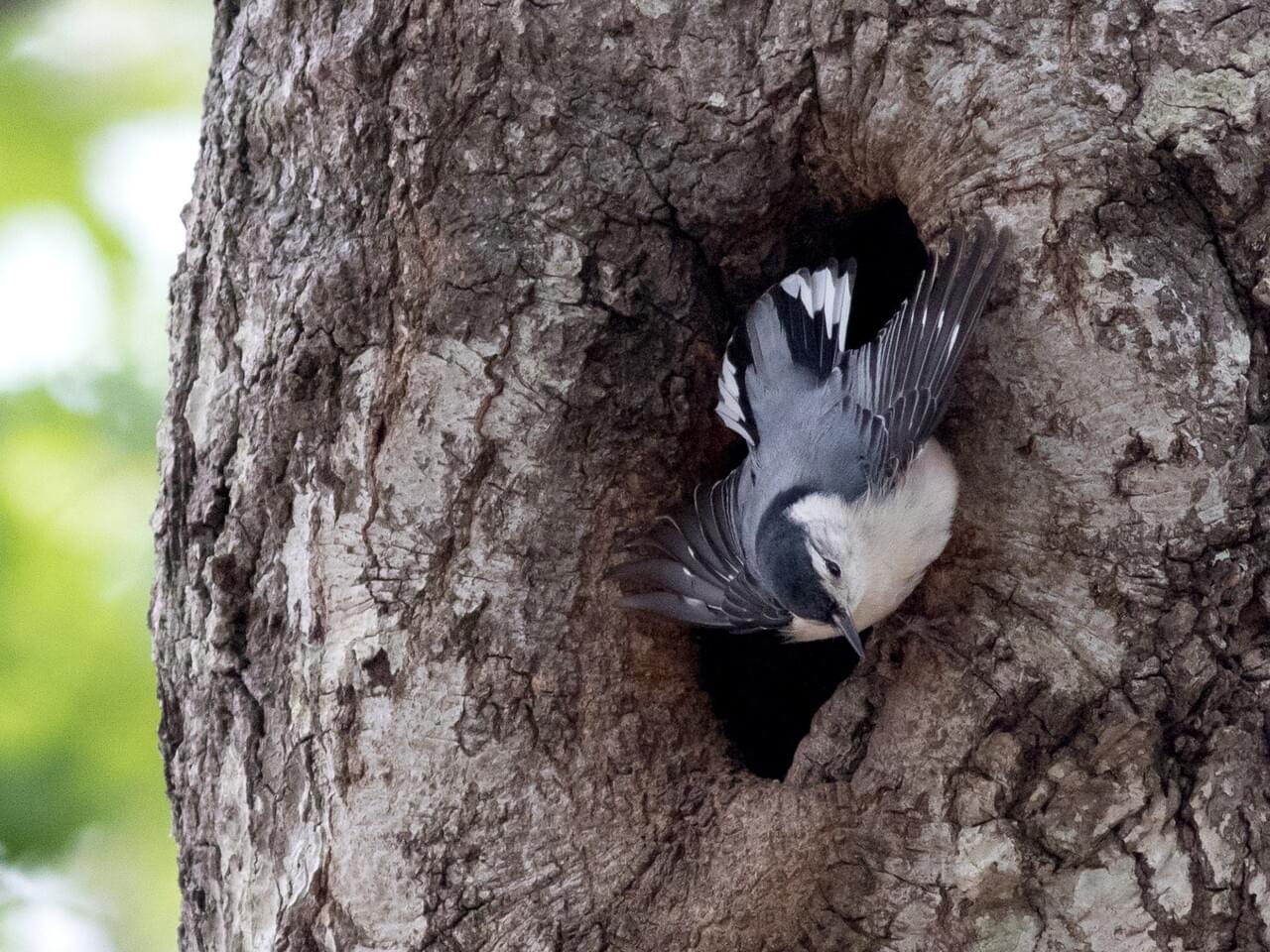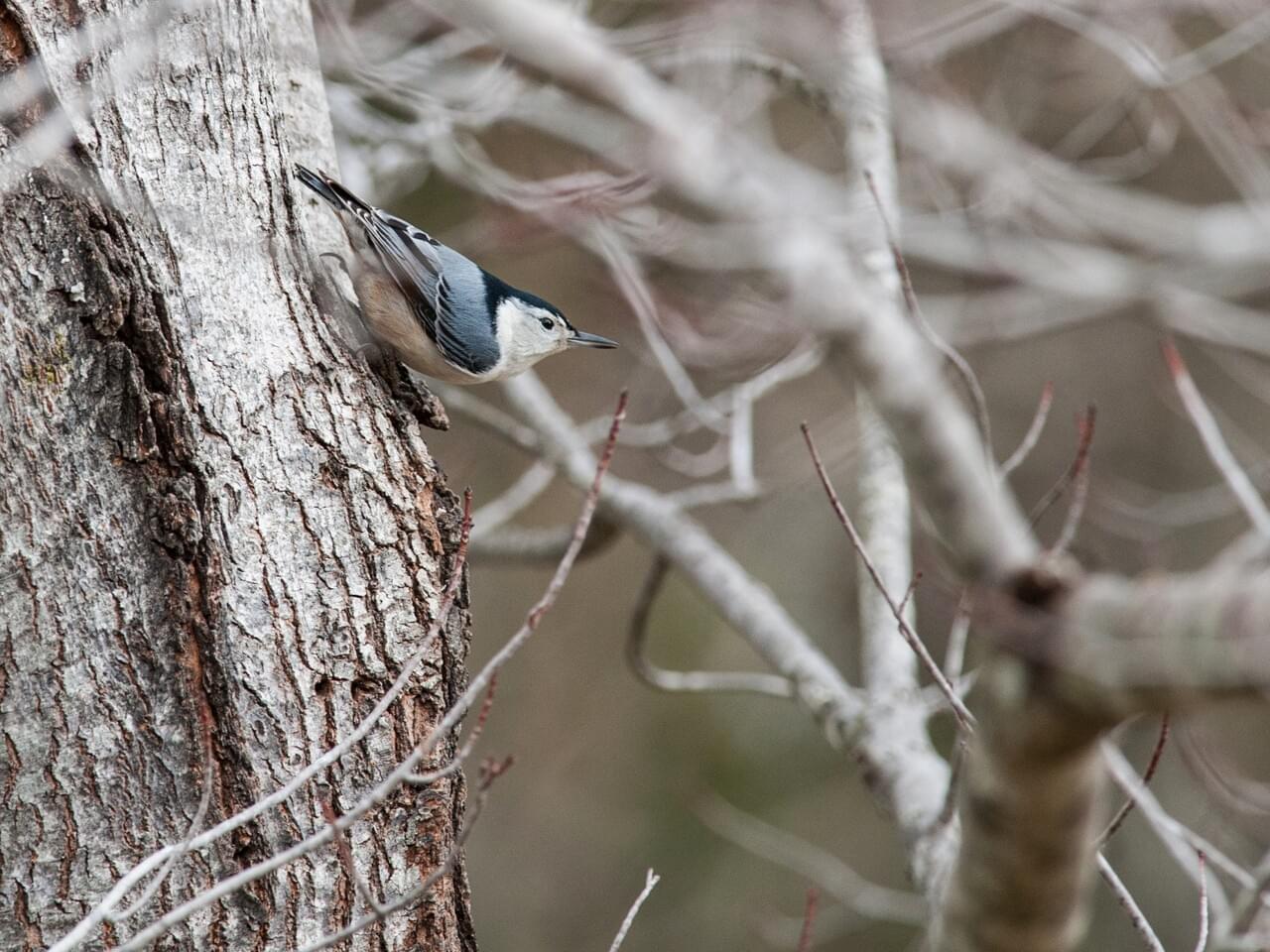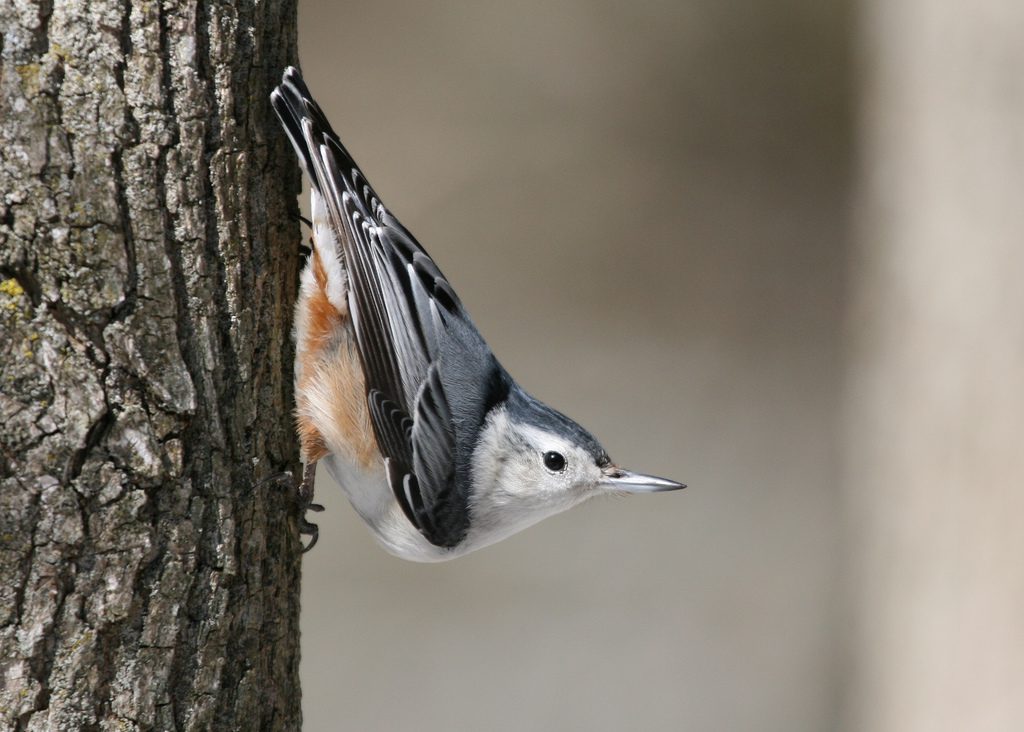 Photo ©
Matt MacGillivray
Photo ©
Matt MacGillivray
White-breasted Nuthatch
Regional Species
A common feeder bird with clean black, gray, and white markings, White-breasted Nuthatches are active, agile little birds with an appetite for insects and large, meaty seeds. They get their common name from their habit of jamming large nuts and acorns into tree bark, then whacking them with their sharp bill to “hatch” out the seed from the inside. White-breasted Nuthatches may be small but their voices are loud, and often their insistent nasal yammering will lead you right to them.
Range
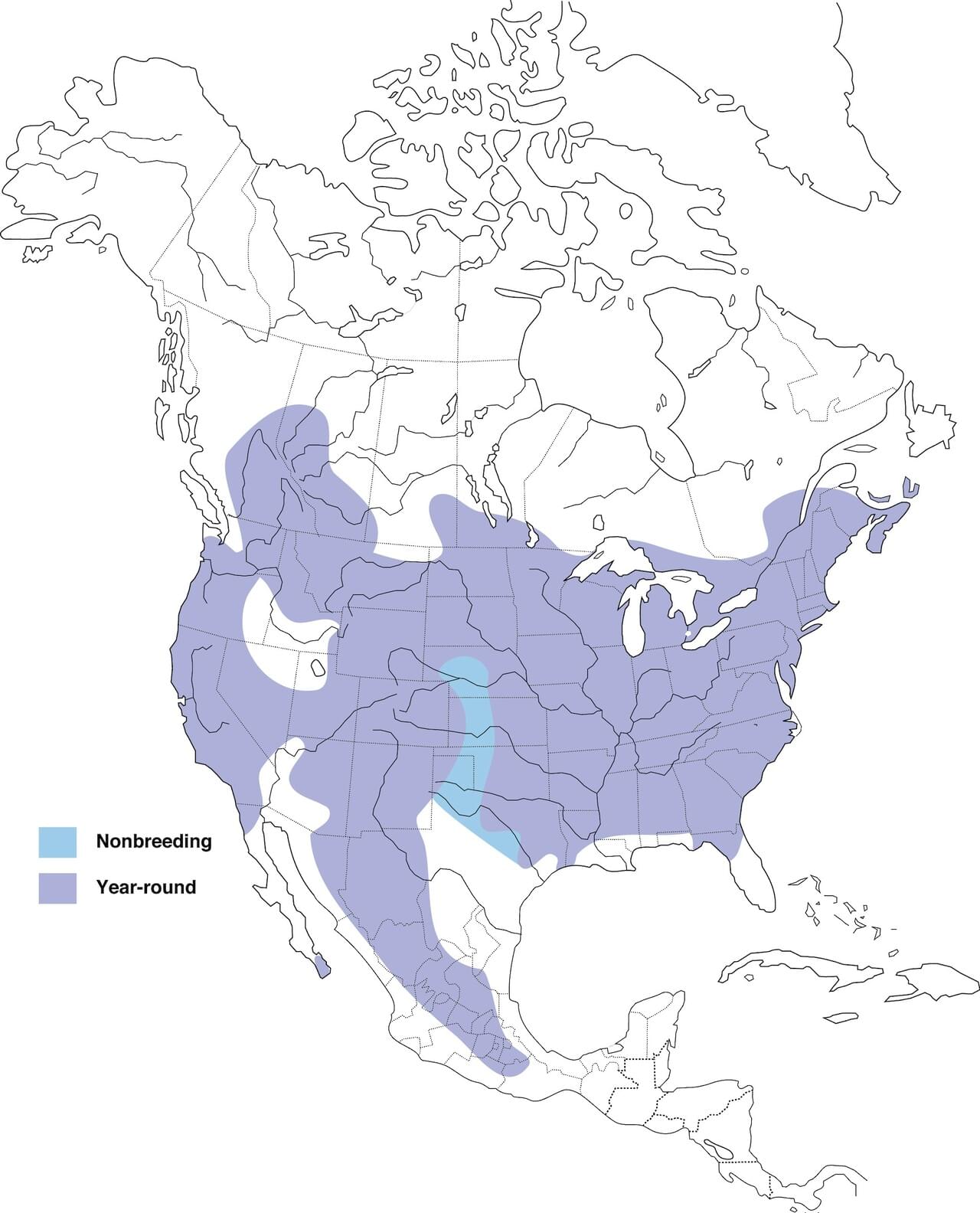
Habitat
White-breasted Nuthatches are birds of mature woods, and they’re more often found in deciduous than coniferous forests (where Red-breasted Nuthatches are more likely). You can also find them at woodland edges and in open areas with large trees, such as parks, wooded suburbs, and yards.
Food
White-breasted Nuthatches eat mainly insects, including weevil larvae, wood-boring beetle larvae, other beetles, tree hoppers, scale insects, ants, gall fly larvae, caterpillars (including gypsy moths and tent caterpillars), stinkbugs, and click beetles, as well as spiders. They also eat seeds and nuts, including acorns, hawthorn, sunflower seeds, and sometimes crops such as corn. At birdfeeders they eat sunflower seeds, peanuts, suet, and peanut butter.
Behavior
White-breasted Nuthatches forage up, down, and sideways over tree trunks and around large branches. They often (though not always) start high in trees and move down them head first, pausing to crane their necks up and back, toward the horizontal, for a look around. They probe into bark crevices or chip away at wood to find food. When they find large nuts and seeds, they jam them into the bark and hammer them open. White-breasted Nuthatches often store seeds and insects one at a time, and somewhat haphazardly, under loose bark on their territory. They typically hide the food by covering it with a piece of bark, lichen, moss, or snow. White-breasted Nuthatches live in pairs year round and chase other nuthatches from their territory. Agitated birds fan their tails, flick their wings, or raise the feathers of the back. A bird backing down from a confrontation typically raises its bill and tail, and droops its wings. In winter White-breasted Nuthatches join groups of chickadees, titmice, and woodpeckers to forage.
Nesting
Females build the nest on their own, lining the nest cavity with fur, bark, and lumps of dirt. She then builds a nest cup of fine grass, shredded bark, feathers, and other soft material. White-breasted Nuthatches often reuse their nest holes in subsequent years.
Appearance
Typical Sound

© Wil Hershberger / Macaulay Library
Size and Shape
The largest nuthatch, this is still a small bird with a large head and almost no neck. The tail is very short, and the long, narrow bill is straight or slightly upturned.
Color Pattern
White-breasted Nuthatches are gray-blue on the back, with a frosty white face and underparts. The black or gray cap and neck frame the face and make it look like this bird is wearing a hood. The lower belly and under the tail are often chestnut.
Plumage Photos
Similar Species
White-breasted Nuthatches are the largest North American nuthatch, and the only one with clear white on the face all the way around the eye. Brown Creepers move along tree trunks like nuthatches, but they're brown instead of gray, with a much longer tail. White-breasted Nuthatches have shorter tails and longer, more pointed bills than chickadees or titmice.
Did you know?!
- The White-breasted Nuthatch is normally territorial throughout the year, with pairs staying together. The male has to spend more time looking out for predators when he’s alone than while he’s with his mate. That’s the pattern for most birds, and one reason why birds spend so much time in flocks. But the female nuthatch has to put up with the male pushing her aside from foraging sites, so she spends more time looking around (for him) when he’s around than when she is alone.
- In winter, White-breasted Nuthatches join foraging flocks led by chickadees or titmice, perhaps partly because it makes food easier to find and partly because more birds can keep an eye out for predators. One study found that when titmice were removed from a flock, nuthatches were warier and less willing to visit exposed bird feeders.
